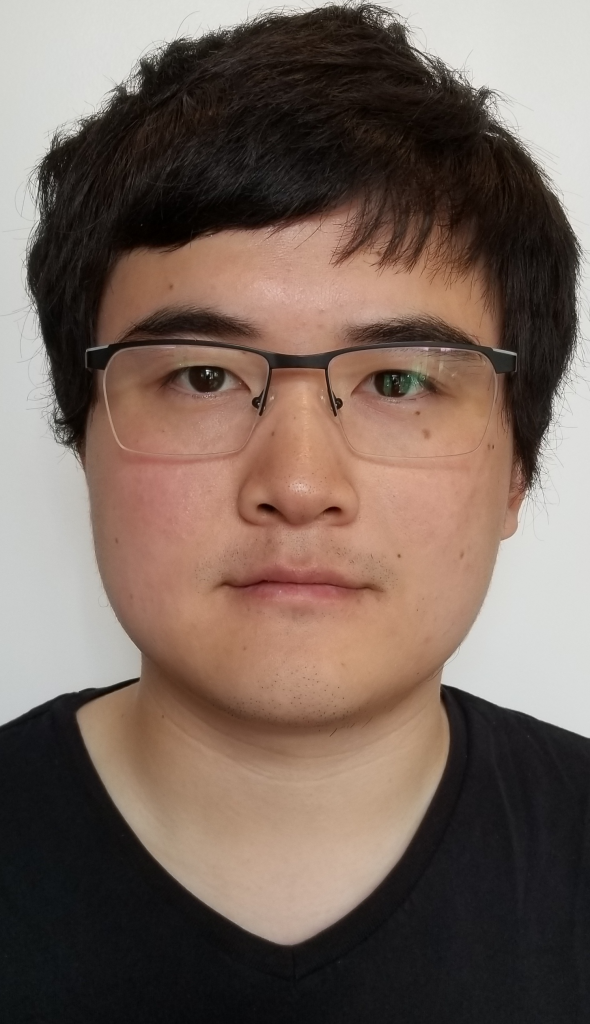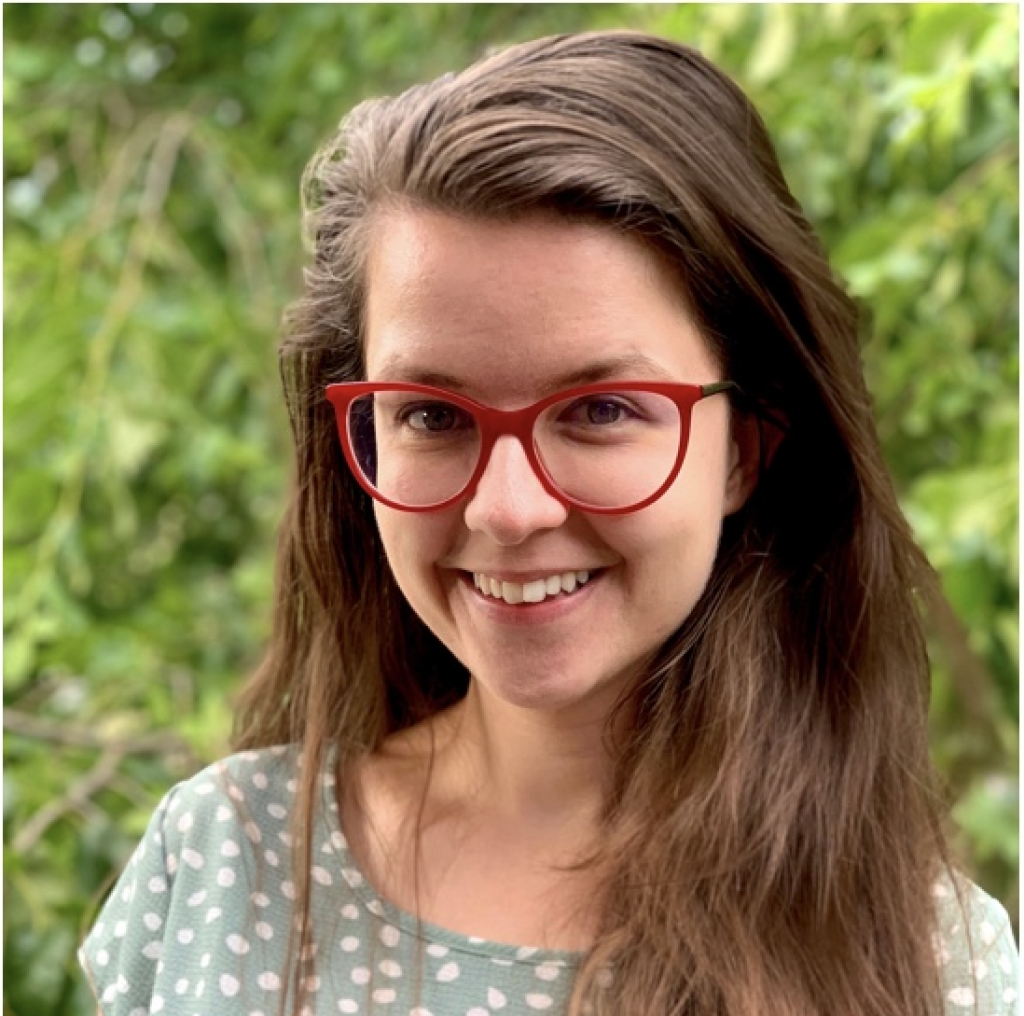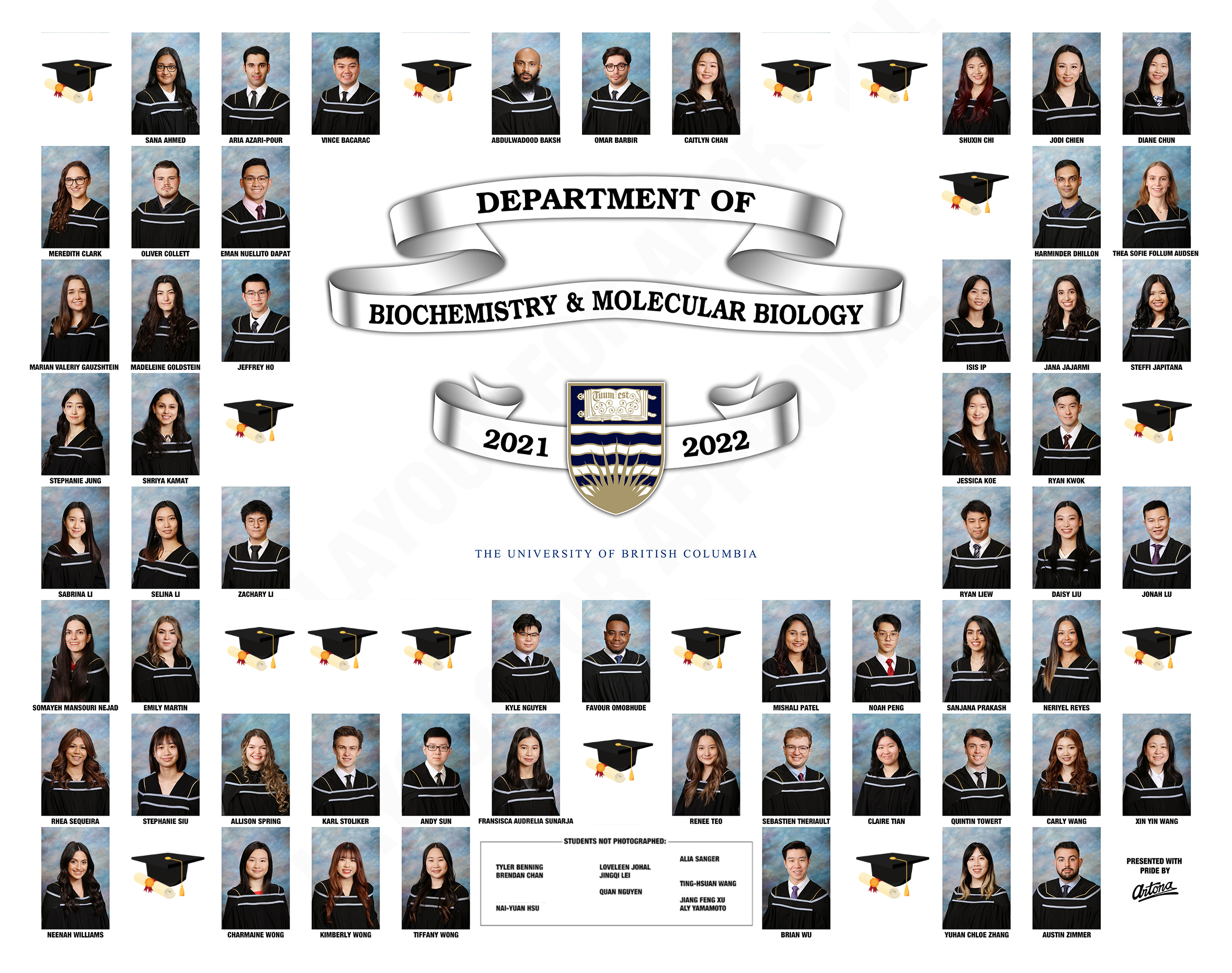The Biochemistry & Molecular Biology EDI Committee was formed in 2020. The EDI committee is composed of undergraduates, graduate students, postdocs, staff and faculty. (Link to see the full members)
The trainee members of the committee actively participates in the regular committee meetings and successfully launched and established a mentorship program in the department in January 2022. The trainees also hosted an EDI focused career night in March 2022
Trainee Members
- Gaetano (Tanio) Calabrese (Postdoc)
- Seby Chen (Postdoc)
- Heather Baker (Grad Student)
- Morgan Towriss (Grad Student)
- Dhiraj Mannar (Grad Student)
- Saiqah Ghafoor (Undergrad Student)
- Risha Banerjee (Undergrad Student)

Heather Baker
Graduate Student in the Mayer Lab
What has been your favourite project/event at the BMB EDI committee and why?
Over the last two years on the BMB EDI committee, I’ve been very proud to be part of several different initiatives that our committee has been championing. My favourite would have to be starting up the BMB Mentorship Program. Together with a sub-group of graduate and undergraduate committee members, we initiated a BMB Mentorship Program to match BMB students and trainee mentors up with mentees. Having a strong role-model and/or mentor that you can seek advice and guidance from can be incredibly useful and can provide a sense of community for those in the BMB program. In particular, we wanted to give participants an option to connect with someone from a similar background, as underrepresented groups in STEM can often face different challenges and meeting with someone who has shared similar experiences can be especially valuable. After we wrapped up the first iteration of the program in late April, we received positive feedback from participants saying that they found the experience really helpful, so we’re looking forward to continuing this program in the fall! It was definitely a challenge to start something new, but it was rewarding to be able to connect people in the department who may otherwise not meet.
What do you do for fun?
I love that Vancouver has such a vibrant arts and culture scene, so I’ve spent a lot of time over the last few years going to concerts, seeing stand-up comedy, and checking out local improv. However, COVID has put a bit of a damper on that over the last little while so I’ve been enjoying a lot of outdoor activities. In the summer, you can catch me out hiking or camping on the weekends and in the winter, you can find me hitting the slopes!
What has been your favourite project/event at the BMB EDI committee and why?
My favourite project was when the BMB EDI committee held EDI focus groups for different students in the biochemistry program. This project really stood out to me because as students brought up their concerns such as work-life balance, funding issues, and mental health, there was a strong sense of community and relief as students realized that they were not alone, and other students were going through similar struggles as they were. I think this project really highlighted the importance of community & mental health in academia, and gave students an opportunity to voice their concerns.
Tell us a little about yourself.
I helped co-found and lead the undergraduate Biochemistry Student Association (BSA) that was launched in 2020. I strongly encourage students to look for clubs related to their specific program or interests. Within BSA, I was able to find many new friends and make strong connections with other students going through similar struggles as myself. Moreover, BSA holds many socials and academic events for students to make new friends and to help navigate their biochemistry degree!

Saiqah Ghafoor
Undergraduate Student
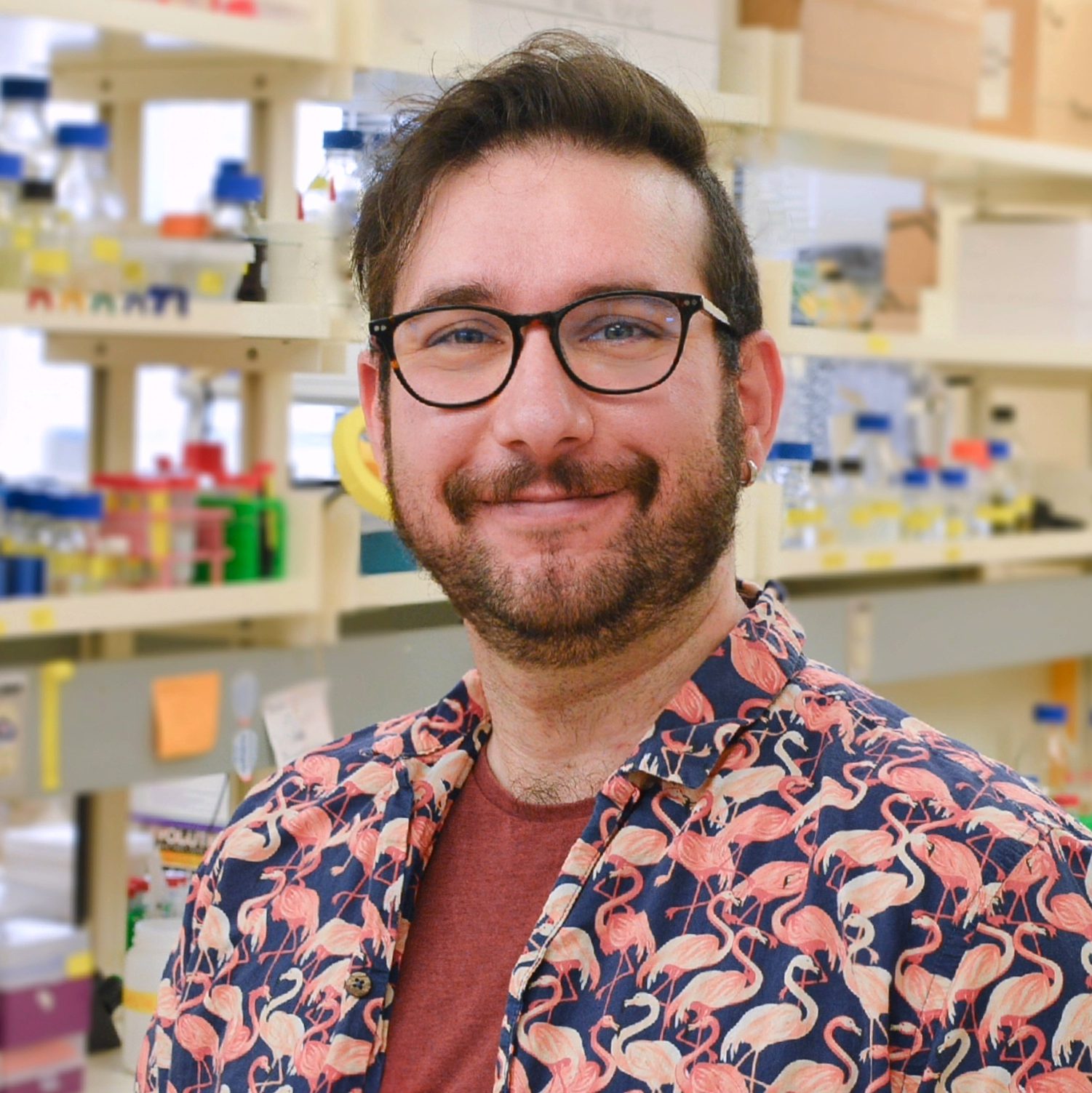
Dr. Gaetano (Tanio) Calabrese
Postdoctoral Fellow in the Mayor Lab
What does your role bring to enhance EDI in the department?
Being a proud member of the “rainbow” community, the concepts of equity and diversity have always resonated deeply inside me. But it has been only through the interaction with other people and listening to (or sometimes becoming part of) their personal journeys that I realized there is a bigger picture and everyone can do something to make the world a better place, open and equitable for everybody. With my personal inclination towards media and communication, my goal and efforts in the BMB EDI are directed towards making awareness-raising videos with my committee members, creating informative pamphlets on helpful topics for incoming students and, in the long-term, re-designing the whole BMB EDI website with a more inclusive and accessible user-oriented focus.
Tell us a little about yourself. What is your hidden talent?
In my free time, I enjoy being in contact with nature or having a creative moment pouring out my thoughts and feelings into something I can see…or taste. My go-to creative media are food or pen and paper – recently exploring digital art and scientific infographics too. You can easily find me either cooking and tweaking one of my Italian grandma’s recipes or spending the evening admiring the sunset under a tree while drawing the latest twisted creature I could come up with: each one being an allegory of either something I experienced or a concept I encountered during the day.
How do you feel about the department EDI committee and the work that is being undertaken?
I feel like we’re making a lot of effort in raising awareness and improving EDI-related issues in the department through various initiatives and events.
What does your role bring to enhance EDI in the department?
I am a postdoctoral member on the EDI committee. As the most awkward position (both a trainee & staff) in the department, I represent the voice of post-docs during decision-making and event plannings.
What has been your favorite project/event at the BMB EDI committee and why?
My favorite project so far is the mentorship project. It was nice getting to know people from different labs and share our experiences navigating academia during this unstable, post-pandemic time.
Tell us a little about yourself.
I am a postdoctoral research fellow in Dr. Filip Van Petegem’s lab studying ion channels implicated in various neuromuscular diseases.
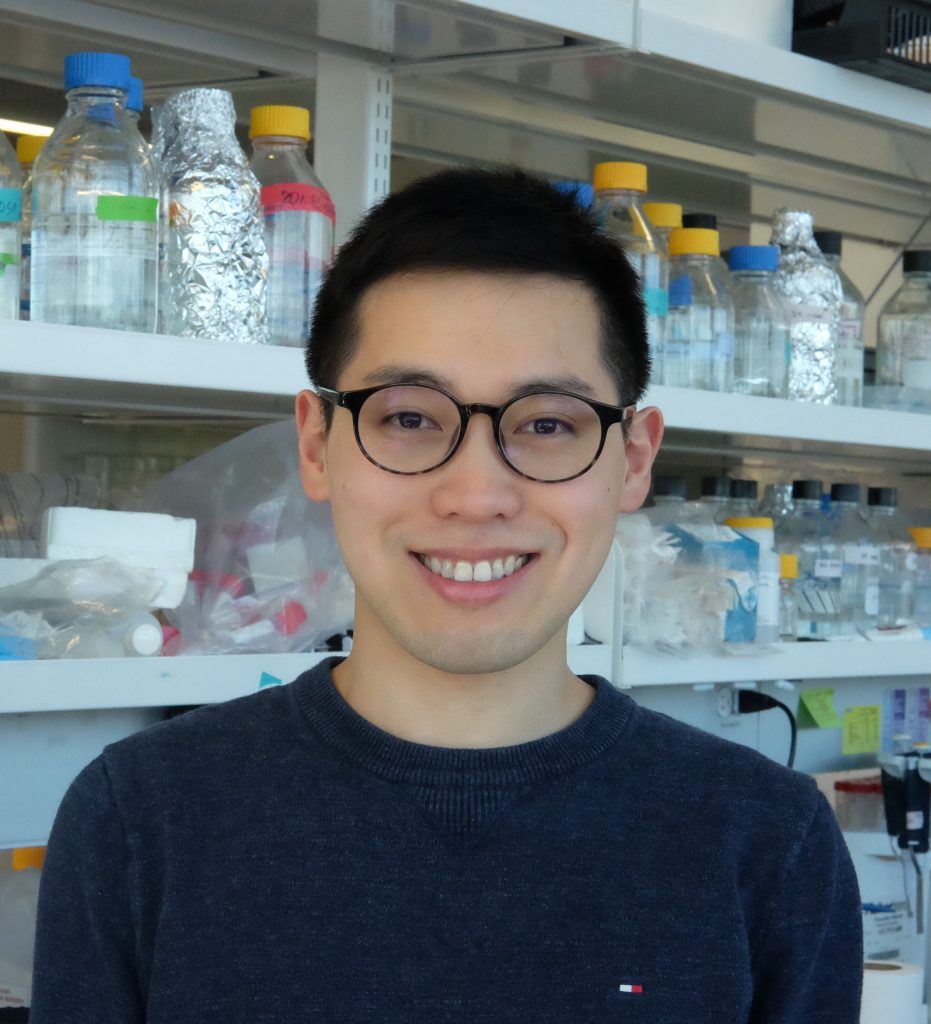
Dr. Seby Chen
Postdoctoral Fellow in the Van Petegem Lab

Morgan Towriss
Graduate Student in Ciernia Lab
What does your role bring to enhance EDI in the department?
My official role in the BMB EDI committee is to advocate for increased equity for graduate students. However, as a proud indigenous woman in science with lived mental health experience, my personal role is more to speak to the importance of equitable treatment of persons with diverse abilities and backgrounds. I hope to enrich the conversation around active inclusivity of persons with low socioeconomic status and mental health challenges.
What is your favourite quote?
A little consideration, a little thought for others makes all the difference. — Eeyore
What has been your favorite project/event at the BMB EDI committee and why?
Probably the pilot mentorship program we ran earlier this year. I am passionate about bringing people together and creating spaces for sharing experiences. I also think fostering a sense of community within our department is important.
What do you do for fun?
I love playing music, skateboarding, running, and drinking craft beer!

Dhiraj Mannar
Graduate Student in Subramaniam Lab

Risha Baerjee
Undergraduate Student
What excites you most about the BMB EDI committee?
Being around like-minded people who want to bring about positive change in EDI within the BMB community! I am immensely grateful for the opportunity to be a part of the BMB EDI committee, and to be able to help in organizing projects and events such as the BMB Mentorship Project and focus groups that have helped me find new resources and learn about others’ experiences with EDI.
What do you do for fun?
I like to crochet, start jigsaw puzzles that I never finish, or aimlessly wander the aisles at Indigo. I also enjoy writing and reading about all things science!

